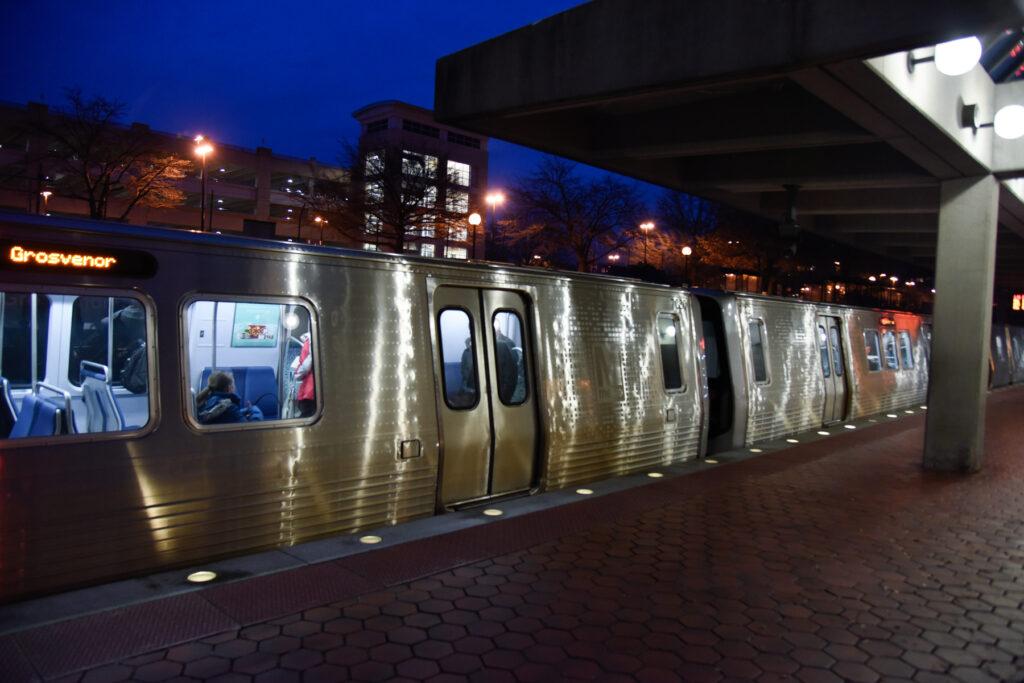The Washington Metropolitan Area Transit Authority (WMATA) recently discussed key fare changes that may take effect in 2022, including eliminating peak traffic fare increases.
Potential fare policies for discussion include discounted fares for low-income riders, a $1 bus fare and eliminating the difference between peak and off-peak fares. The WMATA Finance and Capital Committee discussed the potential changes in a Sept. 23 meeting as part of a Fare Policy Principles and Strategy Work Session. Before a vote on the fare policy changes can occur, the Metro Board of Directors needs to decide which proposal to pursue. Fare changes would not be implemented until July 2022 and remain contingent on a passing vote.

The potential fare changes would increase ridership while making the Metro system more customer-oriented, equitable and convenient, according to the summary of the WMATA Finance and Capital Committee’s Sept. 23 meeting.
“Fare policy and initiatives have the potential to increase ridership, advance equity and improve the customer experience,” the summary reads. “While future ridership and revenue remain uncertain as Metro and the region recover from the Covid-19 pandemic, Metro has the opportunity to update its fare policy principles and to consider additional concepts for fare changes.”
The Metro Board is working to serve customers in the best possible way and improve accessibility with potential fee changes as COVID-19 restrictions ease and the Metro system returns to pre-pandemic operations, according to Paul C. Smedberg, Metro Board Chair.
“We continue to assess how fares meet riders’ changing needs as the region emerges from pandemic,” Smedberg wrote in an email to The Hoya. “The goal of the Board’s fare policy work is to formulate a range of options for our customers to consider in the upcoming budget process and in the context of making the most of our federal dollars that are covering the cost of service.”
The Sept. 23 meeting outlined potential discounts for low-income individuals. Riders would qualify for the discount if they are registered for entitlement programs such as the Supplemental Nutrition Assistance Program (SNAP) or Medicaid.
Providing a fare discount for low-income riders would help individuals commute for work and leisurely purposes, according to Ben Fried, Communications Director at TransitCenter, an organization that aims to make transit more accessible for people of color, low-income communities and people with disabilities.
“That reduces the barrier to access to transit for people who have trouble affording the standard fare, and that’s going to result in people being able to access more employment opportunities,” Fried said in a phone interview with The Hoya. “They’ll be able to just make trips and get around the city with greater freedom thanks for those fare discounts.”
The discussion comes after WMATA introduced new incentives beginning Sept. 5 aimed at increasing ridership in the wake of COVID-19 pandemic restrictions. Changes in discounts and services included free bus transfers, decreased weekend fares and extended Metrorail hours.
The current fare system is not accessible for riders, as the varying trip rates create confusion for patrons, decreasing ridership, according to Fried.
“The distance-based fare that WMATA uses creates a zillion different price points for Metro trips, and that can be really confusing for riders, especially people who are new to the system, and that can be a barrier to entry for people,” Fried said. “So any step toward simplifying that is a step in the right direction.”
Currently, WMATA fares for the Metrorail differ based on traffic rates; peak fares range from $2.25 to $6, whereas off-peak fares range from $2.00 to $3.85. For Metrobuses, fares are more expensive for express and airport express routes. With these discussed changes, all Metrobus fares would instead become a flat $1 fee.
According to Fried, these discussions may be an important step toward crafting equitable transportation systems in the Washington, D.C.-Maryland-Virginia area.
“If they really scale that up and extend it to everyone in the region who is living below the poverty line, that would have a tremendous effect for people’s mobility and the basic fairness of the transit system,” Fried said.
"peak" - Google News
October 01, 2021 at 03:28PM
https://ift.tt/3F9Men8
Metro Considers Discounting Fares, Eliminating Peak Charges - Georgetown University The Hoya
"peak" - Google News
https://ift.tt/2KZvTqs
https://ift.tt/2Ywz40B
Bagikan Berita Ini















0 Response to "Metro Considers Discounting Fares, Eliminating Peak Charges - Georgetown University The Hoya"
Post a Comment